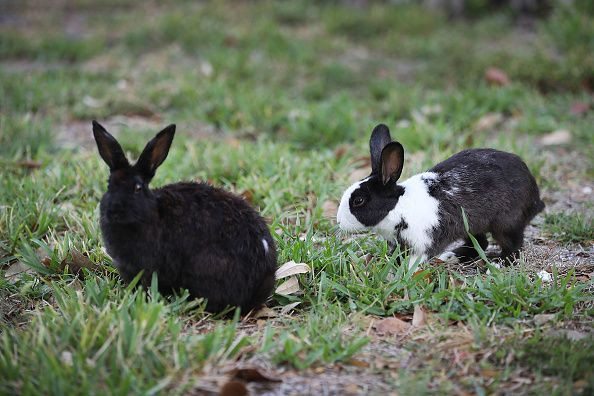Deadly, Contagious Rabbit Virus Detected In California
KEY POINTS
- Wildlife experts had confirmed a Rabbit Hemorrhagic Disease Virus Serotype 2 in California
- Virus could not affect humans, but is harmful for species that depend on rabbits for food
- There is no vaccine for RHDV2 in the U.S. yet
A lethal and highly contagious virus that affects both domestic and wild rabbits has been discovered in California for the first time, wildlife officials announced this week.
In a statement Wednesday, the California Department of Fish and Wildlife (CDFW) said a case of Rabbit Hemorrhagic Disease Virus Serotype 2 or RHDV2 was confirmed in a black-tailed jackrabbit carcass found near Palm Springs in early May, Fox News reported.
CDFW Senior Wildlife Veterinarian Deana Clifford noted the introduction of RHDV2 in California could pose a threat and have severe impact on the wild rabbit populations, especially those that are already at risk, such as the endangered riparian brush rabbit and pygmy rabbit.
"Unfortunately, we may also see impacts on species that depend on rabbits for food, as rabbits are a common prey species for many predators," Clifford in a statement.
See posts, photos and more on Facebook.
Though the virus is not contagious to humans, it is nearly always lethal to rabbits as there is no vaccine for this particular strain of the virus in the United States yet. RHDV2 was only discovered in North America in recent years. Fox News reported the U.S. Department of Agriculture recorded an RHDV2-positive case from feral rabbits in Vancouver Island, Canada, in Feb 2018.
According to KTLA, infected rabbits may exhibit no symptoms before suddenly dying, or may suffer severe fever, swelling, internal bleeding, and liver failure.
The CDFW will closely monitor the progression of the virus in California, investigate and test rabbits found dead, and monitor the population of endangered rabbit populations.
In the same statement, CDFW advised outdoor recreationists to take precautions when hiking, camping, or backpacking and refrain from handling or disturbing carcasses to minimize the potential of RHDV2 spread. Hunters should also take precautionary measures such as "wearing gloves when field dressing rabbits, washing hands and burying remains onsite so that scavengers cannot spread the virus," the department added.
Wildlife experts noted the virus can survive on meat, fur clothing, and equipment for a long period of time, which makes transmission viable to other areas.
Fox News reported wildlife officials have recorded RHDV2 cases in other areas such as New Mexico, Colorado, Arizona, Texas.

© Copyright IBTimes 2024. All rights reserved.





















